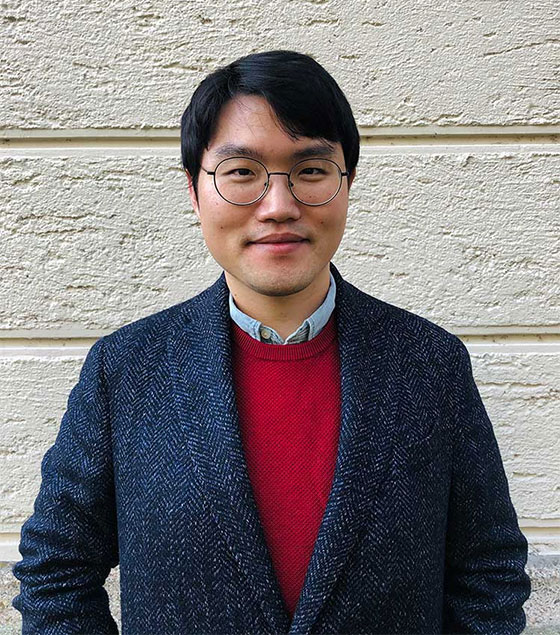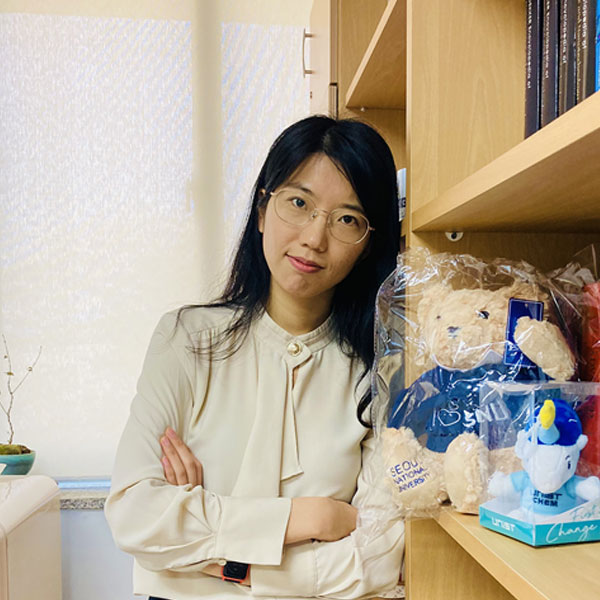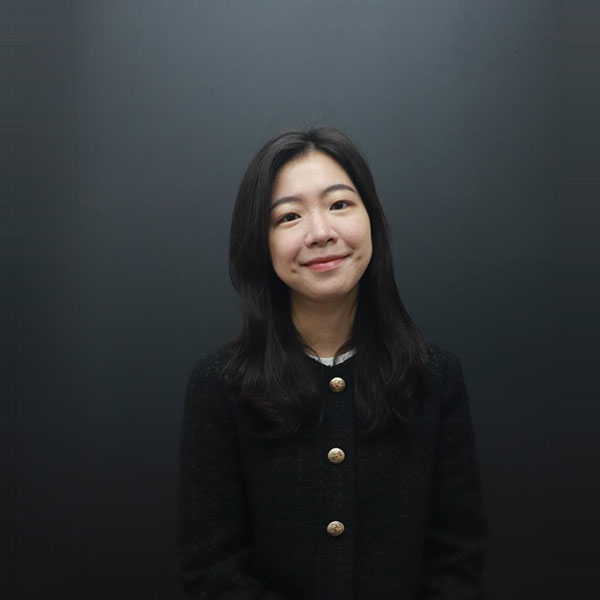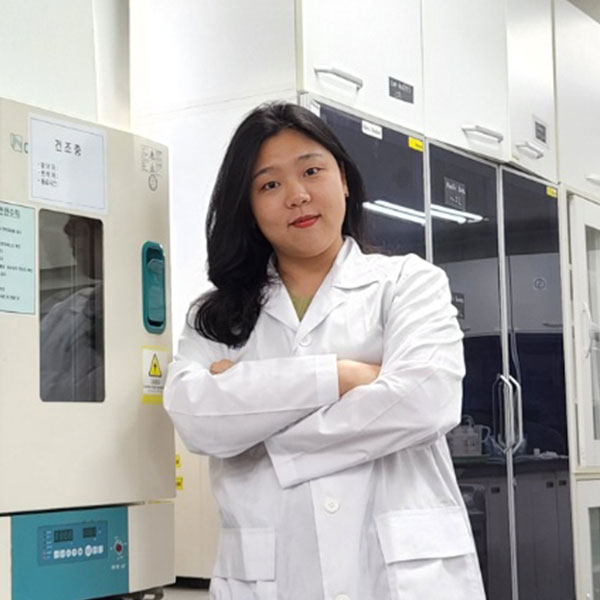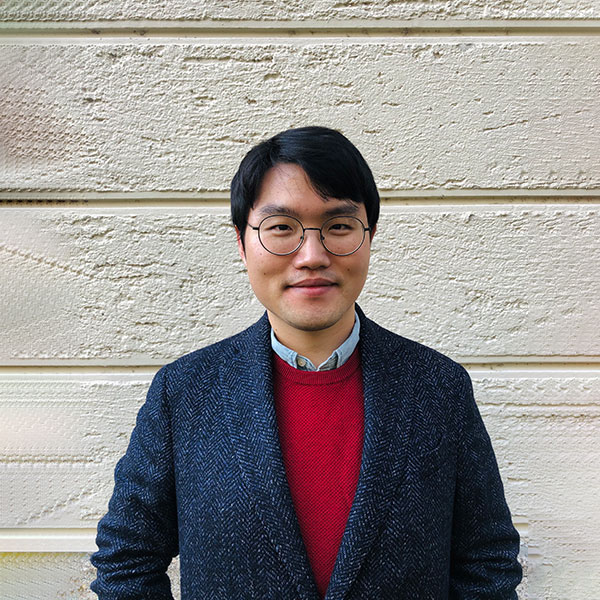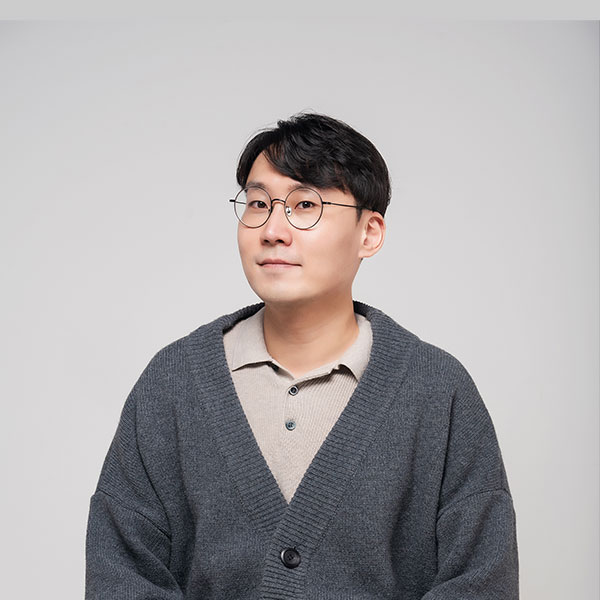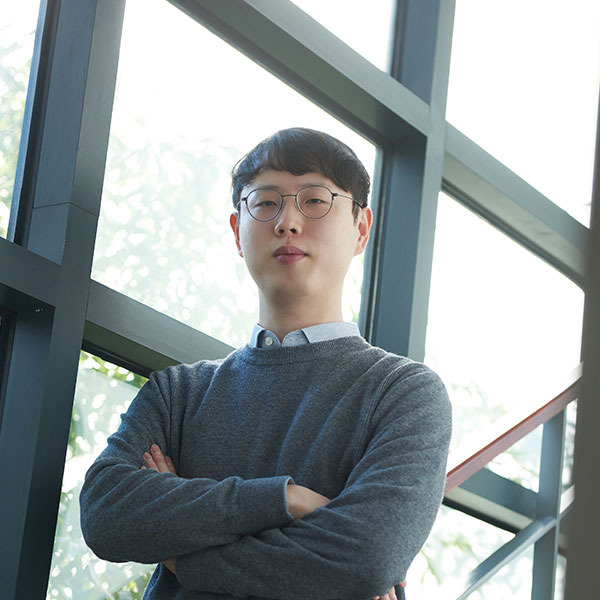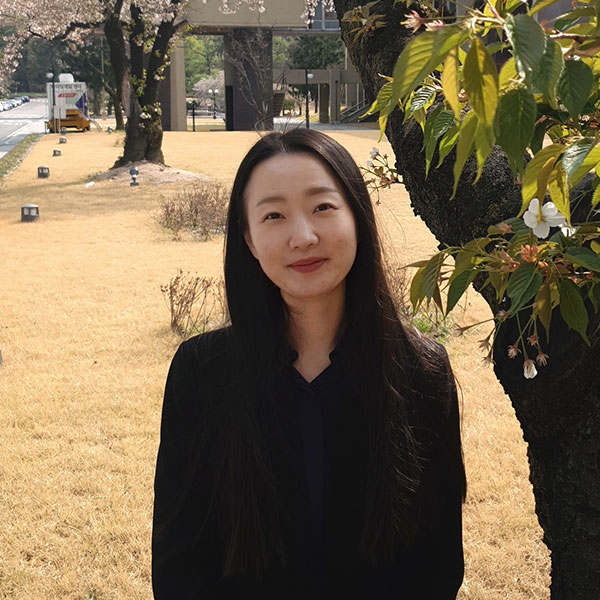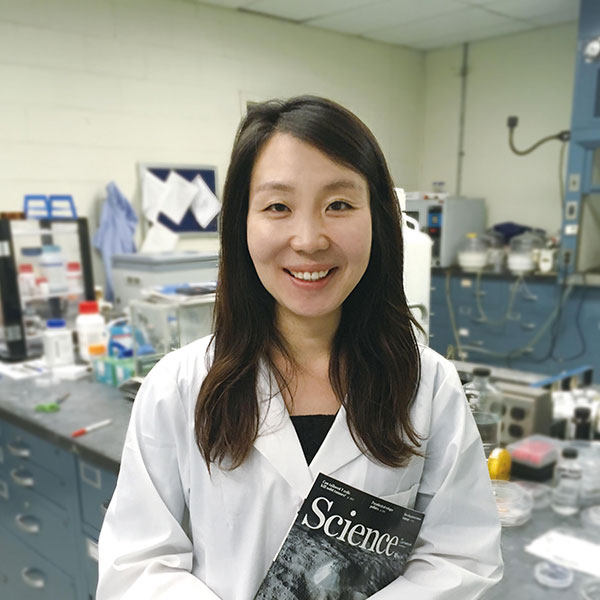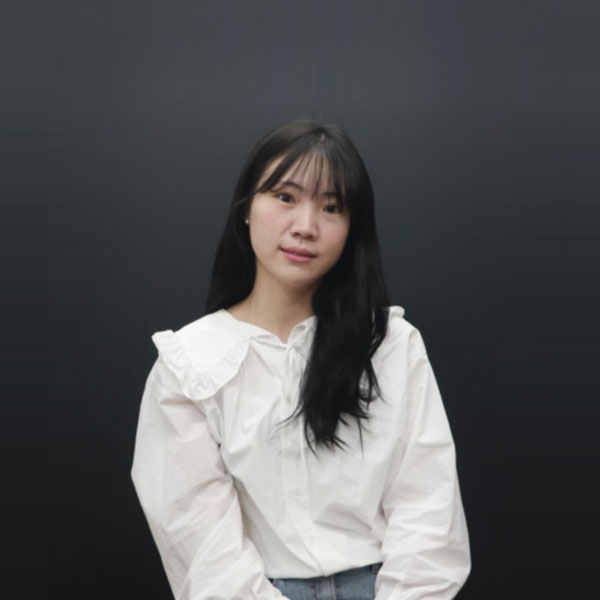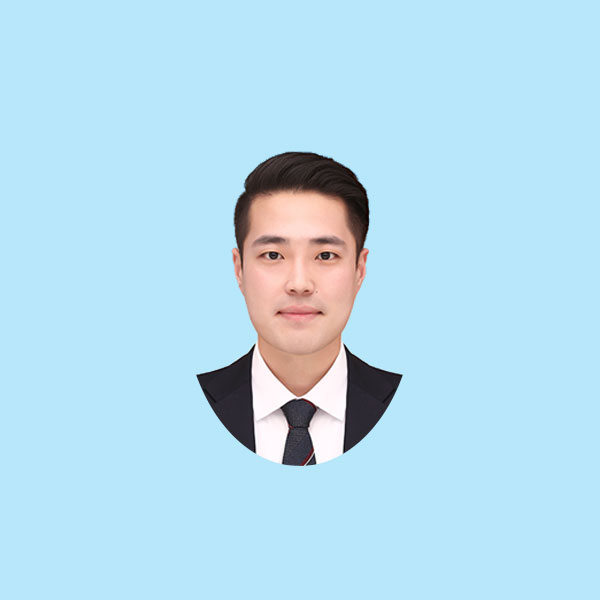What do you think are the strengths of UNIST Chemistry?
There are so many strengths that I can come up with. But I would like to point out three points. First and foremost, UNIST Chemistry has world-leading researchers in the faculty. You can be a part of the world-leading groups here in UNIST Chemistry. Secondly, UNIST Chemistry is equipped with the-state-of-the-art research facilities and equipment that are essential for cutting edge science. Lastly, despite of its short history, UNIST Chemistry has achieved remarkable things. And I think the future is even brighter.
What was the most difficult part during your degree and how did you overcome?
I have a background in Electrical and Electronic Engineering since I had been interested in semiconductor and memory materials. However, the more I studied mesoscopic science, the more I found that I was interested in quantum mechanics. And this naturally led me into quantum chemistry. In a way, I was too young at the time to know how risky this decision was. Quantum chemistry is a field that requires an in-depth understanding of theoretical physics as well as chemistry. That is why, after entering the doctoral program, I studied quantum chemistry and condensed matter physics really hard for almost two years. Although this two year of time was tough for me, I enjoyed learning new things at the same time.
What do you currently do after graduation?
Currently, I am an assistant professor in the Department of Energy Science, Sungkyunkwan University, Korea. Research I do can be summarized into three keywords: energy materials, quantum mechanics simulations, and machine learning. To mitigate climate change, it is essential to develop innovative and efficient energy materials, such as catalyst, energy storage, renewable energy sources, etc. However, there are two main obstacles. Firstly, it is impossible reach the chemical accuracy of any physical/chemical properties of realistic materials due to the notorious exponential wall problem in quantum chemistry. Secondly, it is hard to predict and design novel materials based on theory. Until this day, there is no successful example. My research is to develop theory and methods that could overcome the above hurdles.
What is the most rewarding and happiest moment in your career?
I think one of the most rewarding moments is when people get interested in my work and ask many questions about it. When my work is getting paid attention from people, that’s the moment I feel most rewarded. And I enjoy interacting with colleagues through discussions and conversations about research. I do believe that science has a power to connect people without any barriers regardless of their gender, race, politics, and religion. One of the privilege of scientists is that no matter where you go, you still have a welcoming company in the name science.
Do you have any long-term goal or dream?
Firstly, I would like to make my research group a world-leading group in materials simulations area. Secondly, I would like to commit myself into long-standing problems in my research area and to make meaningful progress in future.
As a UNIST graduate, what advice would you give to students?
When you do research, most of ideas are destined to fail. It is sometimes difficult to keep up the good work because of failure and disappointment. Michele Parrinello, who was my postdoc advisor, once gave me a valuable advice that always look at the positive side at every angle. In all situations and every perspective, being on a positive side is not an easy job but is a secret behind successful research. Michele told me that he had gotten this advice from Kurt Wüthrich (Nobel Prize Chemistry 2002) and maybe this is a secret to the Nobel prize.
